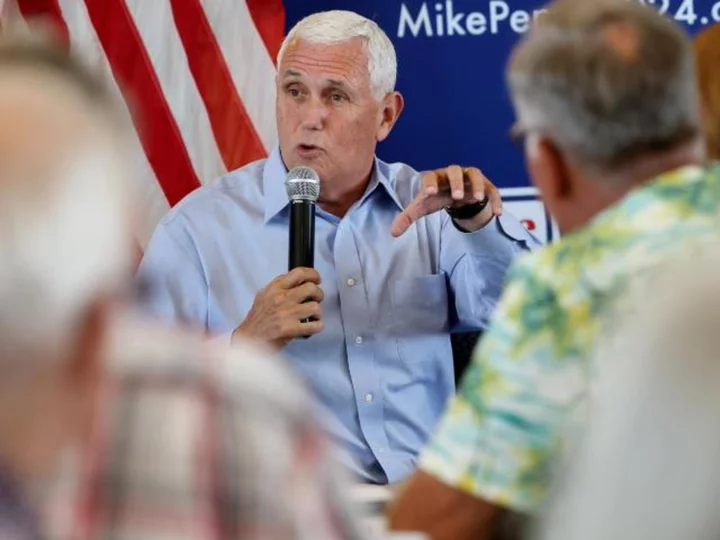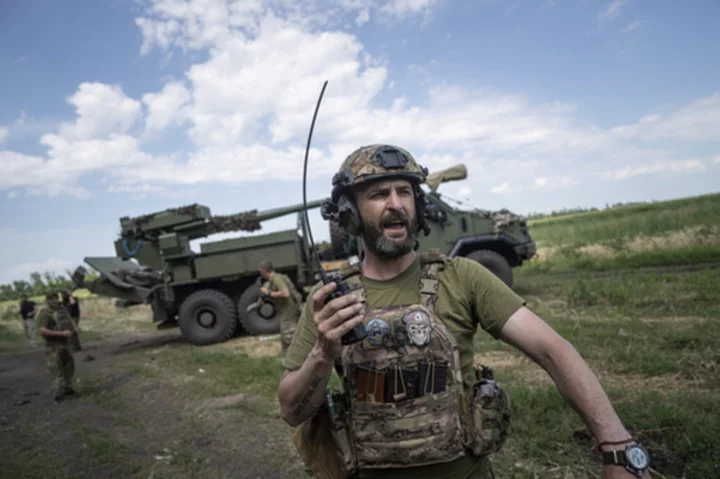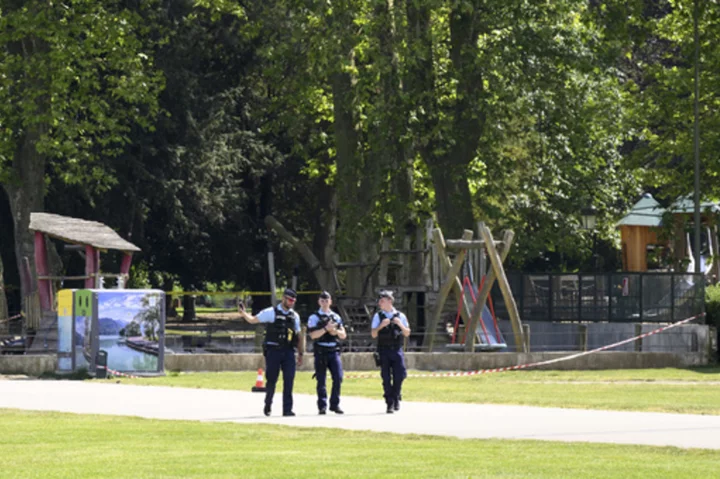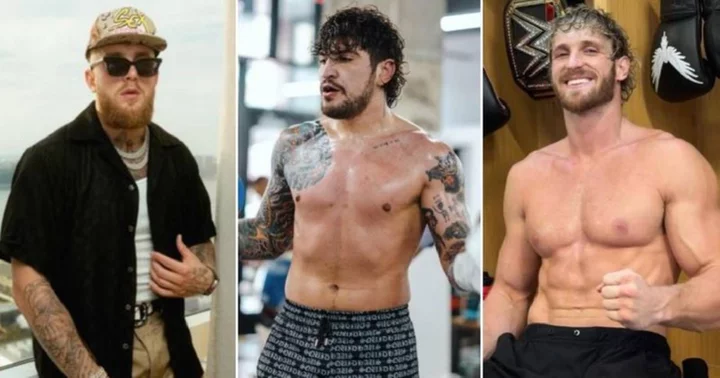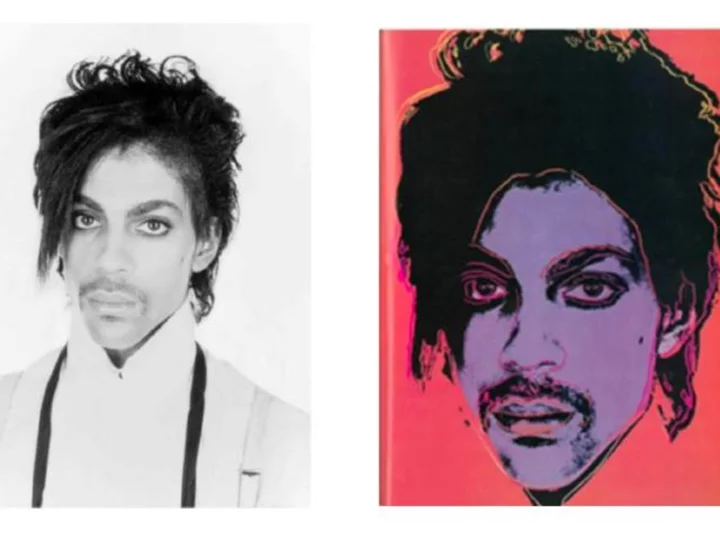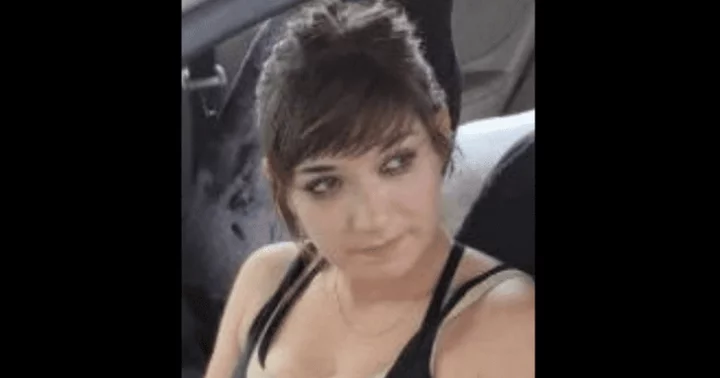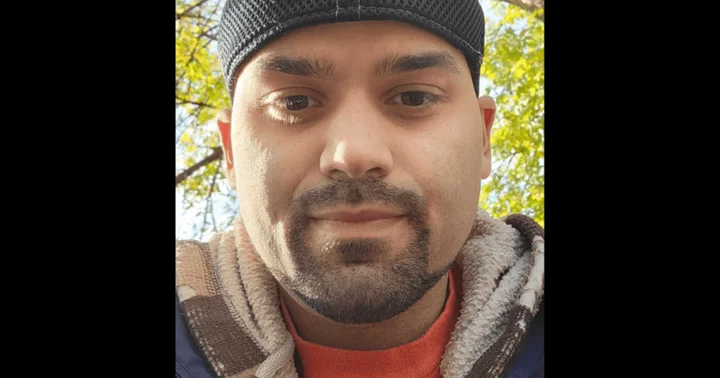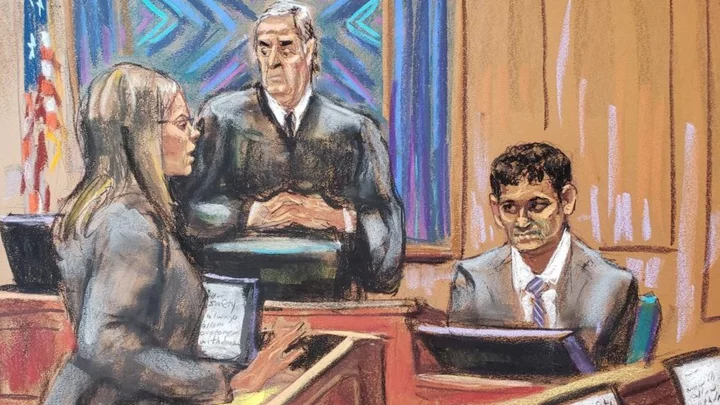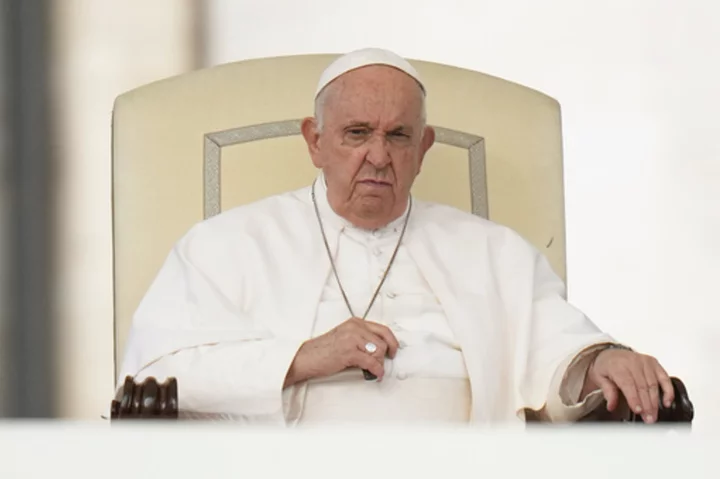Donald Trump hasn't yet committed to the first Republican presidential primary debate in August -- but some of the former president's most vocal critics within the party's 2024 field are still working to qualify for the stage.
The race to meet the 40,000 unique donors threshold set by the Republican National Committee as a minimum to qualify for the first debate -- in addition to polling requirements and a commitment to support the eventual GOP nominee -- is unfolding ahead of a showdown that could be the best chance for lower-polling candidates to break out from the pack seeking to stop Trump from winning a third straight presidential nomination.
The threshold, which also requires at least 200 unique contributors from 20 or more states and territories, is a test of candidates' ability to appeal to grassroots donors across a broad swath of the United States.
Several candidates and their aides say they have already met that donor threshold, including Trump, Florida Gov. Ron DeSantis, South Carolina Sen. Tim Scott, former United Nations ambassador and former South Carolina Gov. Nikki Haley, former New Jersey Gov. Chris Christie and tech entrepreneur Vivek Ramaswamy.
Lesser-known candidates are trying zany, rule-bending approaches to up their donation totals. North Dakota Gov. Doug Burgum is swapping $20 gift cards for $1 campaign contributions. Miami Mayor Francis Suarez's super PAC is offering entries to a free college tuition sweepstakes in exchange for contributions to his campaign.
But the biggest question ahead of the August 23 showdown on Fox News is whether some of Trump's foremost critics -- including former Vice President Mike Pence, former Arkansas Gov. Asa Hutchinson and former Texas Rep. Will Hurd -- will qualify for the stage.
Though they have raised substantial sums before, and Burgum has vast personal wealth to spend on the race, some candidates lack the small-dollar conservative base of donors that candidates like Trump and DeSantis have cultivated. And late entrances by Pence and Burgum further complicate their paths to the debate, which is being held in Milwaukee.
Pence, in a Tuesday interview with CNN's Kaitlan Collins on "The Source," indicated that he has not yet met the donor threshold.
"You bet we'll be on that debate stage. We're working every day to get to that threshold," Pence said. "I'm sure we're going to be there."
However, the paltry second-quarter fundraising haul of $1.2 million that Pence's campaign announced Friday underscored just how far the former vice president has to go to catch his top rivals.
Pence -- who often jokes on the campaign trail that he has already debated Trump many times in private -- said he is hopeful his former ticket mate decides to take the stage.
"I intend to be on that debate stage in late August, and I look forward to squaring off," Pence said.
Hutchinson said Friday on "CNN This Morning" that he has not yet reached 40,000 donors but believes he will eventually hit that mark.
"It's just a question of how quickly we can get there, but we want to be on that debate stage," he said.
The former Arkansas governor has been among the most vocal critics of the RNC's debate qualification rules, pushing back for weeks against the minimum donor threshold.
Hutchinson said Friday that some of the inventive gambits by his fellow candidates to attract the requisite donors "illustrate how silly this whole concept is. They're telling campaigns you've got to reach these limits to make sure you get 40,000 donors. You can do that by your rhetoric and getting people fired up, you can do that by gimmicks, and so we're going to have to do what we need to do to get there."
Hurd does not appear yet to have met the minimum donor threshold. "Will fully intends on meeting the donor and polling thresholds," a campaign aide said Wednesday.
Zany schemes to attract donors
Burgum, a wealthy former software executive, is offering $20 so-called "Biden economic relief cards" in the form of Visa or Mastercard gift cards to 50,000 donors who give at least $1. One solicitation Tuesday described it as a "better deal than anything you are seeing during Amazon Prime Day."
Burgum's campaign on Friday announced an $11.7 million fundraising haul in the second quarter, but $10.2 miliion of that candidate's own money.
Perry Johnson, the little-known Michigan businessman, was at one point selling "I stand with Tucker" T-shirts backing the fired Fox News opinion host for $1.
A super PAC backing Suarez on Thursday launched what it called "Francis Free College Tuition" -- soliciting $1 contributions that would go to the candidate's campaign to enter a sweepstakes that would offer the winner a year of paid college tuition up to $15,000.
Suarez, unlike many other GOP candidates still racing to meet the donor threshold to qualify for the debate, has backed the RNC's rules.
"I do think there should a minimum criteria because time is valuable," Suarez said Wednesday on "CNN This Morning." "I think the Republican Party has tried to set a relatively low bar, and they've tried to create a diverse candidate pool so that people have options."
Ramaswamy's campaign has said he already met the donor threshold -- but his campaign recently launched a program to pay grassroots fundraisers 10% of the money they raise.
Most recent to meet the threshold
Whether Christie would meet the donor threshold was a major question but one he seemed to settle on Wednesday night.
"I am glad to be able to tell people tonight, Anderson, that last night we went past 40,000 unique donors in just 35 days," Christie told CNN's Anderson Cooper on "AC360."
Scott's campaign on Wednesday also announced it had surpassed the 40,000 donor threshold, along with a $6.1 million second quarter fundraising haul. Scott, a prolific fundraiser as a Senate candidate, was widely considered a virtual lock to reach that minimum donor threshold.
Polling rules
Another key benchmark to qualify for the debate stage is polling. Candidates must reach at least 1% in three national polls, or at least two national polls and two polls from separate early-voting states -- Iowa, New Hampshire, South Carolina or Nevada.
The RNC set criteria to determine which polls meet its standards to qualify toward the debate. The first poll to meet those RNC standards, a national survey by Morning Consult, found that Trump, DeSantis, Scott, Haley, Ramaswamy, Pence, Christie and Hutchinson had all reached the 1% minimum to count toward making the debate stage.
Others still have zero qualifying polls toward the minimum qualifications for the first debate.
Larry Elder, the conservative talk radio host and failed California gubernatorial nominee who is seeking the GOP's 2024 presidential nomination, complained in an opinion piece published Wednesday by The Hill that the RNC "has rigged the rules of the game by instituting a set of criteria that is so onerous and poorly designed that only establishment-backed and billionaire candidates are guaranteed to be on stage."
"That's not what our party is about: We are the party of free speech, debate and the exchange of ideas. With 16 months until the general election, Republicans should have as many voices as the stage will accommodate. Anything short of that is elitism," Elder said.
Loyalty pledge
The third requirement to make the August debate is a pledge to support the eventual Republican nominee in the 2024 general election.
Some candidates, including Christie, have grumbled about the pledge but indicated they will agree to it because failing to do so would leave them no real path to the sort of attention needed to win the GOP nomination.
Trump has privately discussed skipping either one or both of the first two Republican presidential primary debates, CNN reported in May. Since then he has not publicly said he would participate in the debate.
DeSantis on Wednesday criticized Trump in an interview with Iowa conservative radio host Howie Carr over his refusal to commit to the debate.
"Nobody is entitled to this nomination. You have got to earn the nomination," DeSantis said, adding that debates are "important parts of the process."
"I will be in Milwaukee for the first debate, and I'll be at all the debates because the American people deserve to hear from us directly about our vision for the country, and about how we're going to be able to defeat Joe Biden," he said.

